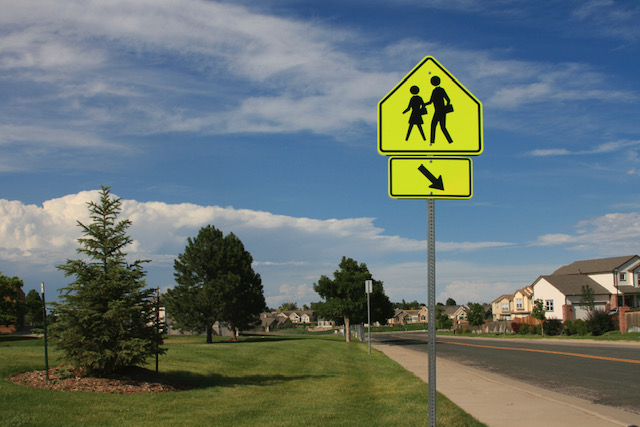The spring weather brings outdoor activities, the end of the school year, and all the fun-filled days summer brings.
The spring and summer also bring episodes of poor air quality to the Greater Philadelphia region. The longer days of bright sunshine and higher temperatures help to bake pollutants from our cars, trucks, and even lawn mowers into harmful ground-level ozone. Unlike the ozone layer in the atmosphere, ground-level ozone is harmful to lungs, and especially harmful to the developing lungs of active children.
Getting exercise and enjoying the outdoors are also important for children’s physical and mental health. So how do you balance protecting your child’s lung health with maintaining an active lifestyle?
The good news is that we can all take positive actions to protect our family’s lung health and to reduce those harmful pollutants in the first place.
The first step is being aware when air quality is going to be unhealthy in the first place. Every day the Pennsylvania Department of Environmental Protection (PA DEP) publishes an air quality forecast that is color coded to communicate the day’s levels of air pollution. The forecast follows the common “green is good”, “yellow is moderate”, “orange is a warning”, and “red is unhealthy”color scheme. Code Orange and Code Red days are designated as Air Quality Action Days. You can follow the daily air forecast or sign up for free text or email alerts at www.AirQualityPartnership.org.

The next step is to take action to protect your health. The Center for Disease Control (CDC) has published recommendations on how to protect yourself and your family’s lungs when outdoor air is expected to be unhealthy at https://www.airnow.gov/activity-guides-publications/. The CDC recommendations offer suggestions on how to exercise safely outside when the quality of air may be poor.
On Air Quality Action Days, it is especially important to take steps to reduce the pollutants that cause unhealthy air. The simplest way to do this is to avoid unnecessary car trips by walking, biking, or combining all of your errands in one trip. You can take other actions like postponing mowing the lawn or avoid using your fire pit until the air improves. Even just refueling your car in the evening after pollutant levels drop can help the daily air quality.
Practicing these simple steps on bad air quality days turn into good habits that improve the air we breathe every day. Making awareness of outdoor air quality a part of your daily routine is a great step towards protecting your family’s health and the environment.
Want a quick way to check daily air quality? Simply scroll down on our landing page, bookmark it to check each day. Air quality data provided by our friends at the Delaware Valley Regional Planning Commission.


